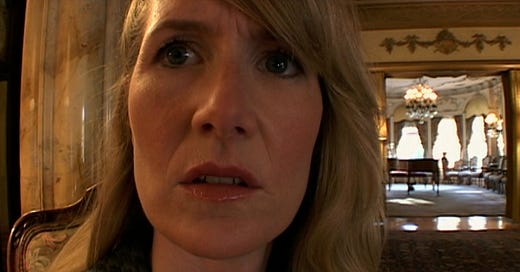Watching
The Northman (2022)
The Northman is a movie about three women; noted Scandinavian Alexander Skarsgård is mostly on hand for his proven ability to maintain visible abs for the duration of a film shoot.
The first of these women, with both the least screentime and the most outsize impact on the imagination, is played by Björk. A blind seeress with a …




